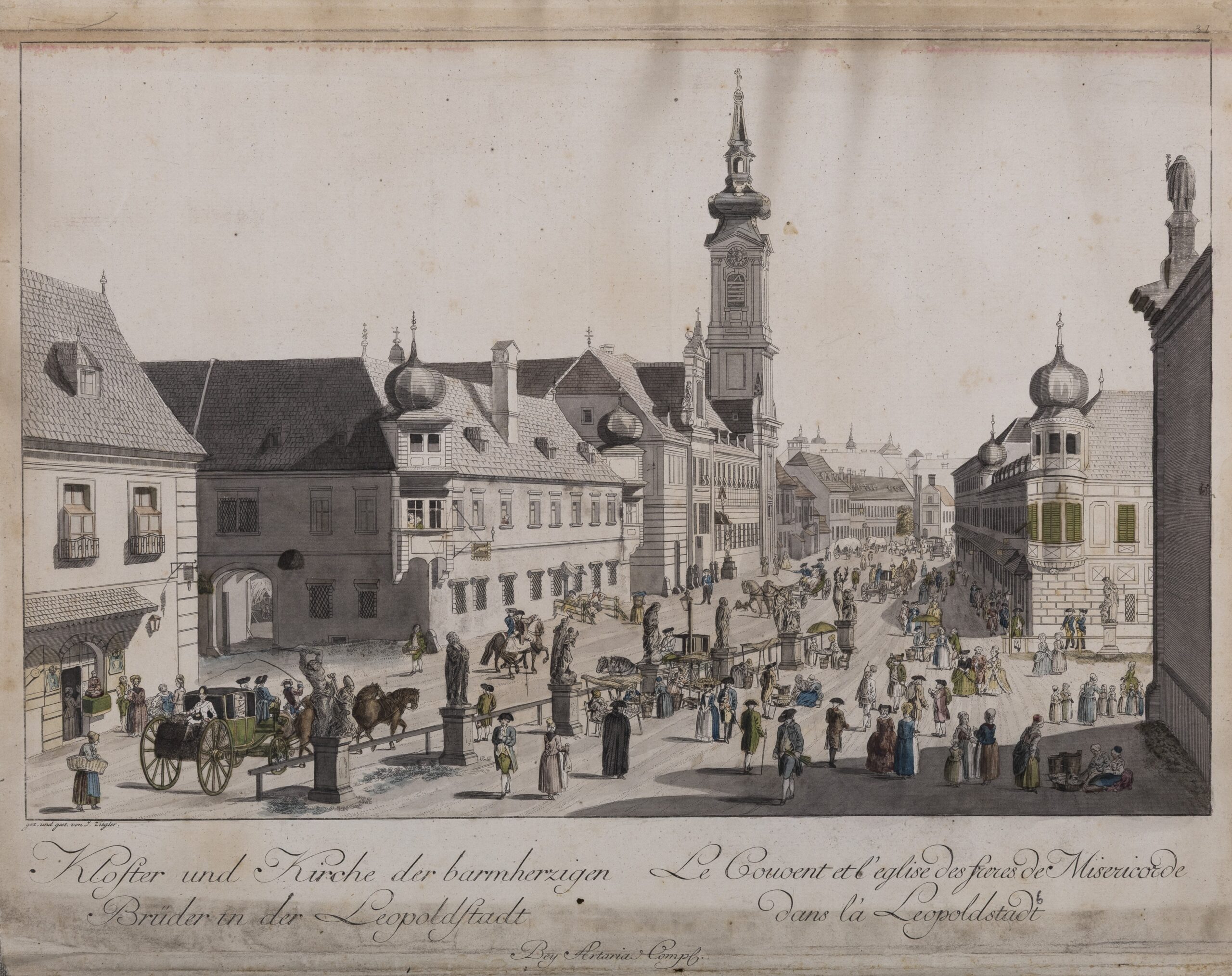‘Under any law, it is permitted to repel force by force’
Mátyás Rábyás makes only passing mention of the house in Szentendre, not telling how he acquired it, when exactly he moved in and how long he stayed there, or where it was located within the town. He usually mentions it in connection with some grievance, like when ‘four Serbs from Szentendre came to my residence’ in August 1784, or when, after a trip to Vienna, ‘I returned to Szentendre, where I found my house completely robbed, although I had received three royal letters of safe conduct, […] I was forced to furnish it again.’
There was an important person associated with the house, whom he mentions only twice in his Autobiography, and even then perfunctorily:
‘they were armed and broke into my house, drove my sister out, and confiscated my lands, which I had had cultivated, seized and broke open my cellar, syphoned off my wine, stole my documents and all my personal effects in Szentendre. So I had to do what was customary in Hungary, and reoccupy my house, take it back, that is, by force.’
On another occasion, he mentions her thus: ‘they sent word to my sister.’
Who did the Ráby House belong to?
The sources mention a certain house, which is insufficient to corroborate the belief that it was the one now known as the ‘Ráby House,’ standing on what is now Rab Ráby Square, with the date 1768 on its keystone. All that can be ascertained from the legal documents is that there was a garden and four rows of grapevines attached to the house. This is where Anna or Zsuzsanna Ráby, the sister of Mátyás, enters the picture. All we know of her is that in 1764 she gave birth to a child in her first marriage in Szentendre, and after she became widowed, she married a local miller, János Edlinger. The ‘Ráby House’ was, in fact, their property.
1784 cannot have been the first time Mátyás Ráby visited Szentendre because in 1779 he borrowed 200 forints from his sister (and, in effect, from her husband). A few months after Ráby came to Szentendre in 1784, his brother-in-law, János Edlinger died, and Ráby moved into his sister’s house. When Edlinger died, a legal dispute arose about Ráby’s right to the house, which Edlinger did not bequeath to him, although he did mention Ráby in his will as someone he owed money to. In his turn, Ráby claimed his brother-in-law had given him run of the house in return for the debt, although he never produced a document to prove his ownership of the building. Interestingly, Szentendre’s 1787 land register, compiled by János Sztojanovics, cites Raab Matthias as the owner of house no. 693—and though he was in prison at the time, his sister probably still lived there. On later maps and land registers, the house numbers are different.
Postmaster János Leányfalvi, the uncle
To flesh out the story, Jókai created more family ties in Szentendre, making János Leányfalvi, the postmaster, Ráby’s uncle. The figure of the postmaster became so deeply etched in the public consciousness of Szentendre that, as late as the 20th century, Ráby’s house on Szamárhegy was mentioned in periodicals as to be standing next to Leányfalvi’s (Turisták Lapja, 1934; Nemzeti Ujsag, 1937).
In the novel, Ráby buys the house to become a townsman and thereby gain the right to have a say in public affairs. Many of the scenes are subsequently set in the house, his love nest with his wife, Fruzsinka, where their maid, Böske also lives. After Fruzsinka leaves Ráby and the townspeople start to ‘drive him out,’ the previous owner retakes the house. In an episode of high adventure, Ráby commands an army of ruffians and reoccupies the house for a short time.

